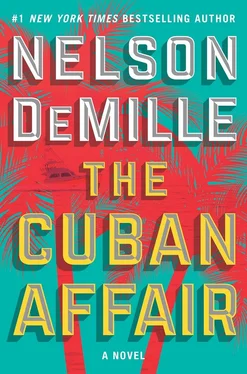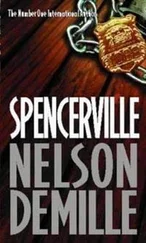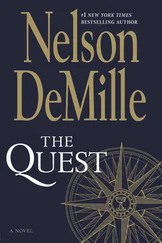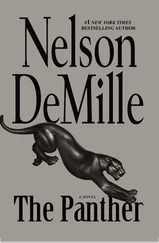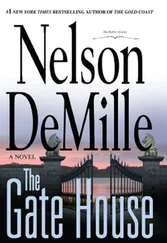“All I’m doing tonight is listening.”
“Who’s the old guy?”
“Your guess is as good as mine.”
“And make sure you understand how, where, and when the two million is going to be paid. For that kind of money, they’d rather kill you than pay you.”
“I’d rather kill you than give you half a million.”
He laughed, then said seriously, “If you decide to say no to this, I’m okay with that. And if you say yes, then I’m with you because I trust your judgement.”
“My judgement sucks, Jack. That’s why I hired you. But trust my instincts.”
We made eye contact and Jack nodded.
I said, “Go change your shirt. That’s an order.”
Jack went below.
I cut back on the throttle and stared out at the horizon. Jack Colby and I don’t agree on much, but we agree that after surviving frontline combat duty we were both on borrowed time. My former fiancée, Maggie, told me that God had another plan for me. I hope so. The last one didn’t work out so well. But to be fair to God, the combat thing was my plan. Man plans, God laughs.
I idled the engine and checked the depth finder. Lots of shoals out here and I didn’t want to drift onto them. I toggled the windlass switch to lower the anchor, then cut the engine.
I came out of the cabin and saw that Jack was wearing a The Maine T-shirt, and he’d set up a folding table with the bags of snacks, rum, Coke, ice, and five plastic tumblers with lime wedges.
Carlos did the honors, choosing the Ron Santiago, and made Cuba Libres for everyone. The alcohol rule for the crew is twelve hours between bottle and throttle, but Jack says you’re just not supposed to drink within twelve feet of the helm. I say never refuse a drink when you need one.
Eduardo proposed a toast. “To a free Cuba. Salud!”
We clinked and drank.
Carlos commented on the Cuban rum and said, “Those Communist bastards nationalized the Bacardi factory, stole it from the family, but it’s still good rum.”
In my infrequent dealings with Cuban Americans, I’ve learned that “Communist bastards” is one word. Well, I guess if the Conch Republic ever nationalized my boat, I’d be pissed, too. But I was still surprised at the depth and duration of the hate.
I glanced at Sara, who was looking out at the setting sun. She hadn’t said much, though Carlos said she’d be honest with me about the dangers of this trip to Cuba. But maybe she was thinking that I wasn’t the guy she wanted to trust with her life. I had the same thought about her.
Jack, picking up on the theme of Communist bastards, told our customers, “I killed a lotta Commie bastards in ’Nam.”
Eduardo smiled and drank to Jack.
Carlos, warming to the subject, asked, “Did you know that Cuban Communists participated in the torture of American prisoners of war in the Hanoi Hilton?”
Jack replied, “I heard about that.”
Carlos continued, “What most people don’t know is that about twenty American POWs were taken to Havana’s Villa Marista prison and subjected to brutal interrogation experiments, including mind-altering drugs and extreme psychological torture. They all died in Cuba, but they are listed as missing in action in Vietnam.”
Jack said, “Commie bastards.”
Carlos was obviously psyching up the troops to hate the inhuman enemy. But when you do that, you also run the risk of frightening the troops. Havana wasn’t looking so good to me.
Sunset cruises are supposed to be two or three couples getting romantic, and I had great mood music, like Bobby Darin singing “Beyond the Sea,” or if my customers are younger I put on one of my Adele CDs or Beyoncé. But this group wanted to hear “Onward Christian Soldiers.”
To change the subject I asked my customers, “Do you know about the green flash?”
They didn’t, so I explained, “When the sun dips below the horizon, there is sometimes a flash of green light. Some people see it, some don’t. But if you see it, it means you’ll have good luck.”
Carlos, being a lawyer, said, “People will lie.”
“If you lie,” I told him, “bad luck will come to you.”
Carlos had no comment, but Sara said, “I’ve heard it told differently. If you’re already blessed and chosen, then you’ll see the green flash. Those who are not favored will not see it.”
I said, “I’ve heard that, too. But I assume all my paying customers are blessed.”
She smiled.
Eduardo produced five Cohibas and said, “Made in Cuba by slaves, but still hand-rolled in the traditional way.” He passed them around and Sara also took one.
Jack had a Zippo lighter and lit everyone up. He showed his Viet-era Zippo to his fellow septuagenarian, and Eduardo read the engraving: “ ‘Yea, though I walk through the valley of the shadow of death, I fear no evil, for I am the meanest motherfucker in the valley.’ ”
Jack and Eduardo got a laugh out of that.
Well, Jack had a new friend. The cultural divide narrows when you hit seventy.
We smoked our contraband cigars and drank our contraband rum. I got my binoculars out of the cabin and scanned the horizon. To the south I saw what appeared to be a Coast Guard cutter. Also, I’d seen at least two Coast Guard helicopters overhead.
The Straits of Florida between the Keys and Cuba are well-patrolled waters. The Coast Guard and the Drug Enforcement Agency are on constant alert for drug smugglers, human smugglers, and desperate refugees from Cuba trying to make the short but dangerous sail to freedom.
If you live in the Keys, you know that thousands of Cubans set out each year in homemade boats and unseaworthy rafts — the balseros, they were called. The rafters. They prayed for calm seas, favorable winds, and no sharks, and put themselves into the hands of God.
Of the thousands who attempted the crossing each year, I don’t know how many made it, how many drowned, or what happened to those who were caught by Cuban patrol boats — but I did know that under the current refugee policy, if the U.S. Coast Guard picked them up at sea they were considered “Wet Foot,” and returned to Cuba. But if they made it to land in the U.S. they were “Dry Foot,” and allowed to stay. Which seemed to me to be a cruel and arbitrary process, an affirmation that life is randomly unfair.
I and most of my fellow charter boat fishermen agreed that if we ever picked up a balsero at sea, we’d take them ashore.
I passed the binoculars to Sara, and she, Carlos, and Eduardo scanned the horizon to the south, consciously or unconsciously looking for their countrymen.
Carlos said, “The sea is calm, the winds are from the south, and there will be a moon tonight.”
Everyone understood that this was a night for the rafters.
Carlos freshened everyone’s drinks and asked me some questions about The Maine . He then mentioned the Pescando Por la Paz and said to me and Jack, “I hope you’ll consider that.”
I didn’t reply, but Jack said, “I hear I’m skippering The Maine.”
“Yes, if Captain MacCormick agrees.”
I said, “We can talk about that later.”
Carlos asked us, “Do you have passports?”
Jack replied, “Yeah. Issued by the Conch Republic.” He laughed.
Carlos didn’t get the joke, but said, “You can both get an expedited passport in Miami. I can help with that.”
I actually had a real passport, and I’d made Jack get one in case a customer wanted to sail to a Caribbean island. I said, “We’re good.”
The sun was red now, dropping into the sea, and we all looked out at the sparkling horizon. I can’t believe I get paid for this.
On that subject, Carlos said, “If I see the green flash, I’ll pay double. If I don’t, this trip is free.” He looked at me.
Читать дальше
